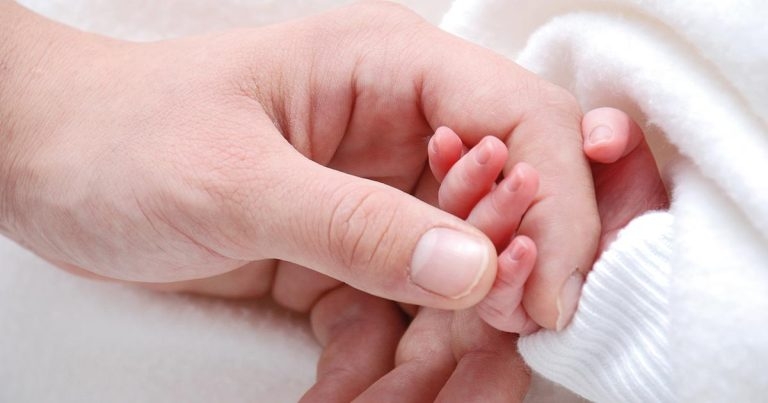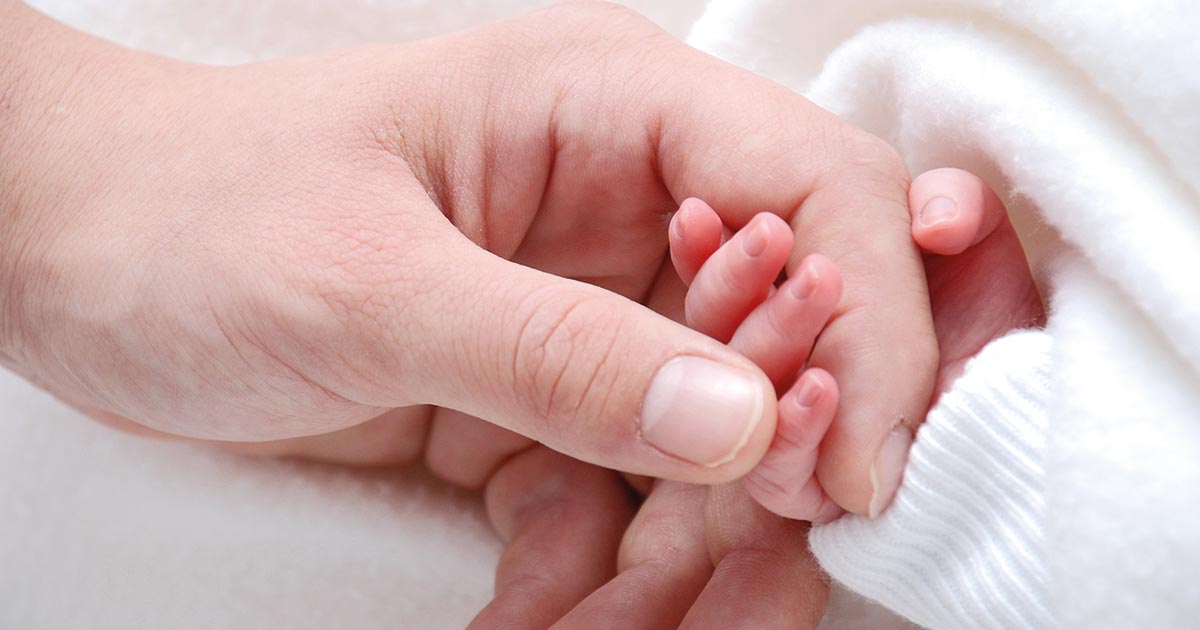15 Jul 2018
After looking at the challenges around the perinatal period. Liz Barton discusses parental leave and discovering it’s perhaps not the long, relaxing career break imagined.

Image © Sabimm / Adobe Stock

We might be used to sleep deprivation with shift work, but parental sleep deprivation seems much tougher, thanks to hormonal shifts and bodily exhaustion from the nine-month pregnancy marathon and being on constant high alert for the littlest whimper. Don’t plan to get much achieved if you don’t want to be disappointed.
We’re used to treating animals unable to communicate via speech, so surely managing a baby will come naturally, easily and we’ll cope fine? However, the reality is babies often don’t read the textbooks, and we often lack the confidence to go with our gut instinct, as this is the one species we haven’t studied. Most mums will tell you your gut instinct is almost always spot on.
We’re used to dealing with the responsibility of life and death for our patients, but our own human being is a whole other ball game. It’s so easy to compare and contrast to other parents to see how well they seem to cope and how perfectly their children eat, sleep and develop – and, by extension, to feel our own efforts are inadequate. The reality is more luck of the draw; you get a good or difficult one, and that is no reflection of your own parenting ability.
We’re used to grown-up conversation where we feel respected and valued by colleagues and clients. It’s not something I thought about, but not having the analytical part of the brain exercised, and without the daily affirmation and feedback, something felt very lacking.
Mum and baby groups tend to offer little more than snippets of half-finished conversations alongside cold tea (lukewarm if you’re lucky); babies seem to interrupt far more than is necessary. I discovered buggy bootcamps as an alternative; mums and babes exercising outdoors in all weathers. It was good for mind, body and soul, and the camaraderie of attempting a squat jump with semi-functional pelvic floor muscles led to plenty of laughter (which actually exacerbated the problem).
We’re used to having high-functioning analytical minds. Mummy brain sounds like an excuse for being a bit forgetful when you’re tired, but I still suffer years on from the neurone-zapping effect two children had on me. I just accept it now, and simply seek out references and formularies more frequently than I used to.
CPD during maternity leave can also be a struggle. Podcasts, logging time on websites as CPD, webinars and e-newsletters are often easier to stomach than trawling through journals or trying to attend courses. Check out most of the pharmaceutical companies as they offer good free e-CPD resources.
Like many things, maternity leave is about managing expectations. If you’re prepared to indulge in box sets, books and not achieve much, you’ll enjoy your time with your baby more. Give yourself a break; you’ll never get the time back, and even though it feels like Groundhog Day, you’ll blink and they’ll be crawling away from you at a rapid rate. Slummy Mummy (www.slummymummy.co.uk) and Hurrah for Gin (http://hurrahforgin.com) offer light-hearted, relatable and often hilarious parenting blogs.
Then come the thoughts about returning to work. The pros of being able to have adult conversation, and get back to the job we loved, are balanced with the desire to be with our little ones. Time is our most precious resource, but has to be balanced with finances. A poll on Vet Mums and Veterinary Voices Facebook groups asked when vet parents returned to work:
Of 315 vet mums who answered:
Of 28 dads who answered:
The conflicts are well expressed by Vet Mums member Claire MacLennan, who said: “I would have liked to have stayed off longer, but financially I couldn’t afford to. I found it very challenging to adapt from being a vet, always on the go and working, to then being stuck with a small person reliant on my every need. It felt like I was doing nothing, yet didn’t have time to do anything. Obviously now I’ve adapted and it’s the best job in the world.”
The reality is life is always a compromise. We’d love not to have to compromise when it comes to our parenting, but we must accept we can’t do it all and be everything to everyone – even our own children. If there’s one lesson my children have taught me it’s to relax, accept myself and not to strive for perfection. It’s okay to just be okay.
At its core, shared parental leave (SPL) is easy: it’s just up to a year of leave, shared between both parents. You can go in to work a combined total of 50 “SPLIT” days (earning up to 50 days’ pay) during the year and choose to end it at any time. Simple. The thing is, SPL is made out to be scarier than it really is. Here are some reasons why it can be daunting, ways to make it more manageable and why you should bother …
SPL is new – it was introduced in 2015. Employers are still not well experienced in how it works, and new parents aren’t experienced in anything. At all. As a result, many workplaces are reluctant to get involved, and parents don’t know enough to push for it.
We read the guides at Gov.uk and presented our intentions to our employers as a plan not a request. We decided the new mother would take the first nine months of leave, and the new father takes the last three. If we do it again, we’ll do seven and five, respectively.
It requires coordination. Arranging days of holiday, or baby care, to make use of SPLIT days requires a little bit of forward planning. And working out the logistics of commuting with a baby is like trying to solve the fox/chicken/corn/river puzzle.
We each took lone days of holiday to allow the other to make use of the SPLIT days. This more than doubled what we would have earned on statutory maternity pay and kept each parent involved in events at work. For the first three months, the baby was quiet and still enough to work with in a sling, in rooms away from anaesthetics.
Dads get judged. Fathers are still normally paid more. On average, they stand to lose more financially if they choose SPL. Also, SPL is still unusual. For these reasons, fathers are still routinely questioned/teased by both their peers and new mothers at support groups. This can be off-putting.
I ignored a week or so of comments from both peers and other parents, until the advantages to the parent-child bond became obviously worth the financial loss and the time/effort, and then the comments stopped.
Know your rights. Gov.uk is the place to learn what the employer must allow. Some parts of the law are open to interpretation. Interpret them in your favour, before they get interpreted for you, and talk your employer into agreeing.
Run the numbers. Working out how much SPL will earn or lose (compared to maternity leave) takes one evening on Excel. If it’s a loss, consider the advantages (stronger parental relationship, stronger parent/child bonds and increased skill levels) and whether you think the cost is worth it.
Remember the ripcord. If it all gets too much, be aware that, legally, you can, at any time, cancel your leave and return to work. Nothing is risked by trying SPL.
We found SPL a huge relief and a lot of fun. The amount of leave for each of us was low enough that we retained work-specific skills, kept our finger on the professional pulse, and didn’t get cabin fever and go mad. However, the amount of leave was high enough that we both ended up with strong parenting skills, a very reliable bond to the baby and, in my case, time to do a significant amount of DIY at home.
The baby got a full year of total parental care (in a variety of styles) and enough time to get to know each of us.
We got enough extra cash to take the whole year of leave, time to learn practical skills, a chance to each develop a personal support network and the opportunity to prove to each other we consider ourselves equals in the relationship.
Worth it.
Postnatal depression (PND) is really common, affecting 1 in 10 women according to the NHS. You may go through a period within the first month after the birth when you feel really down; this is absolutely normal and quite often referred to as “baby blues”. Many of the symptoms linked with baby blues are like those of postnatal depression. You may struggle with mood swings, insomnia, irritability and find yourself regularly bursting into tears.
PND has similar, but more intense, symptoms of feeling low, tearful, anxious, irritable, overwhelmed, guilt, withdrawal and detachment. It can last for long periods. If these symptoms persist, it is vital to contact your GP or health visitor. PND can’t be prevented, but informing your GP of familial history of depression or previous mental illness should mean he or she keeps a monitor on how you’re doing. Keeping a healthy lifestyle of food and exercise can reduce risk.
Treatment can include talking therapies or medication. If you are breastfeeding, make sure you talk to your doctor about any concerns you may have about taking any medication. Also, search for PND support online – so much is out there and the more support you have from different sources, the better.
In part four, Liz will cover the machinations of returning to work, rota patterns and confidence issues.